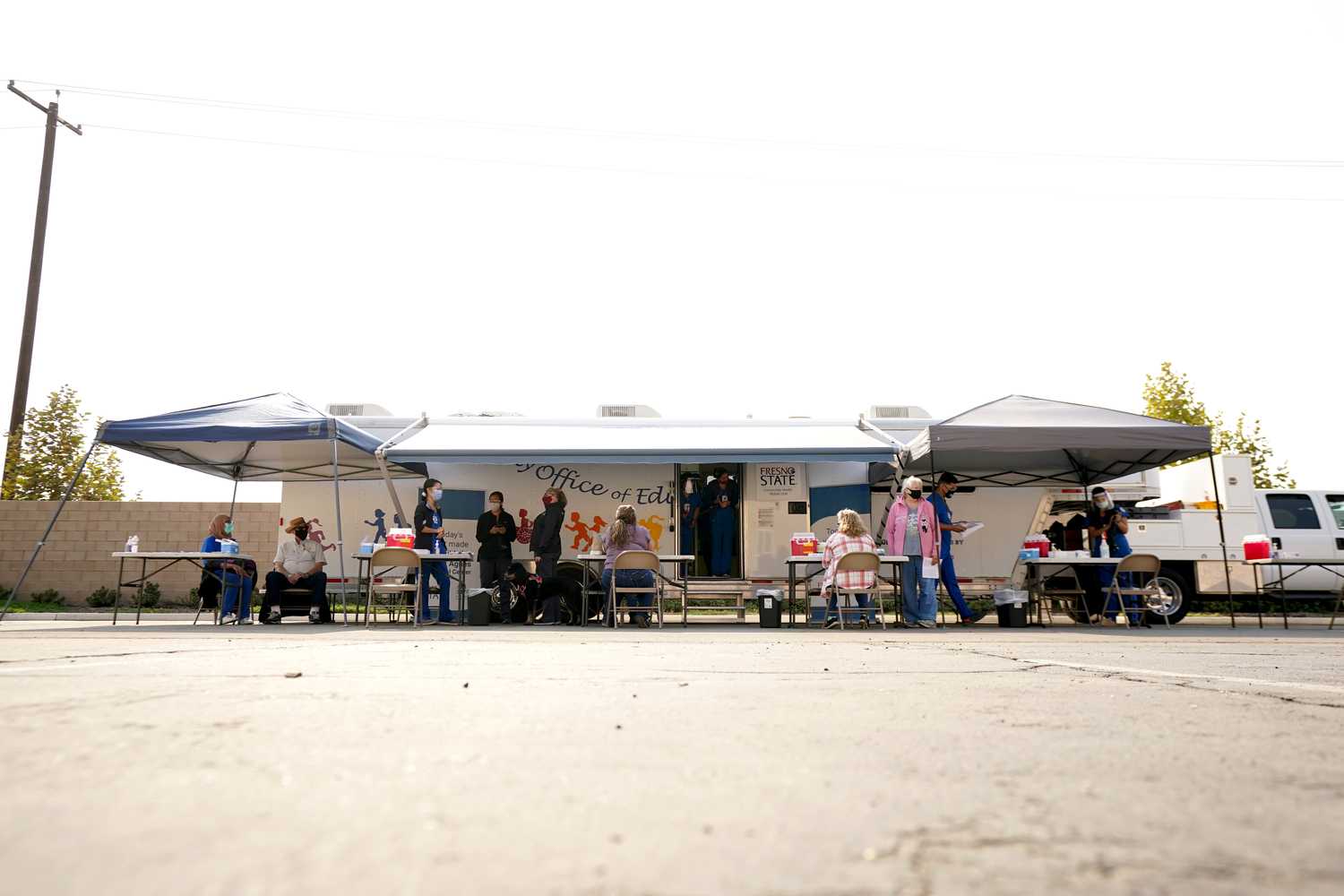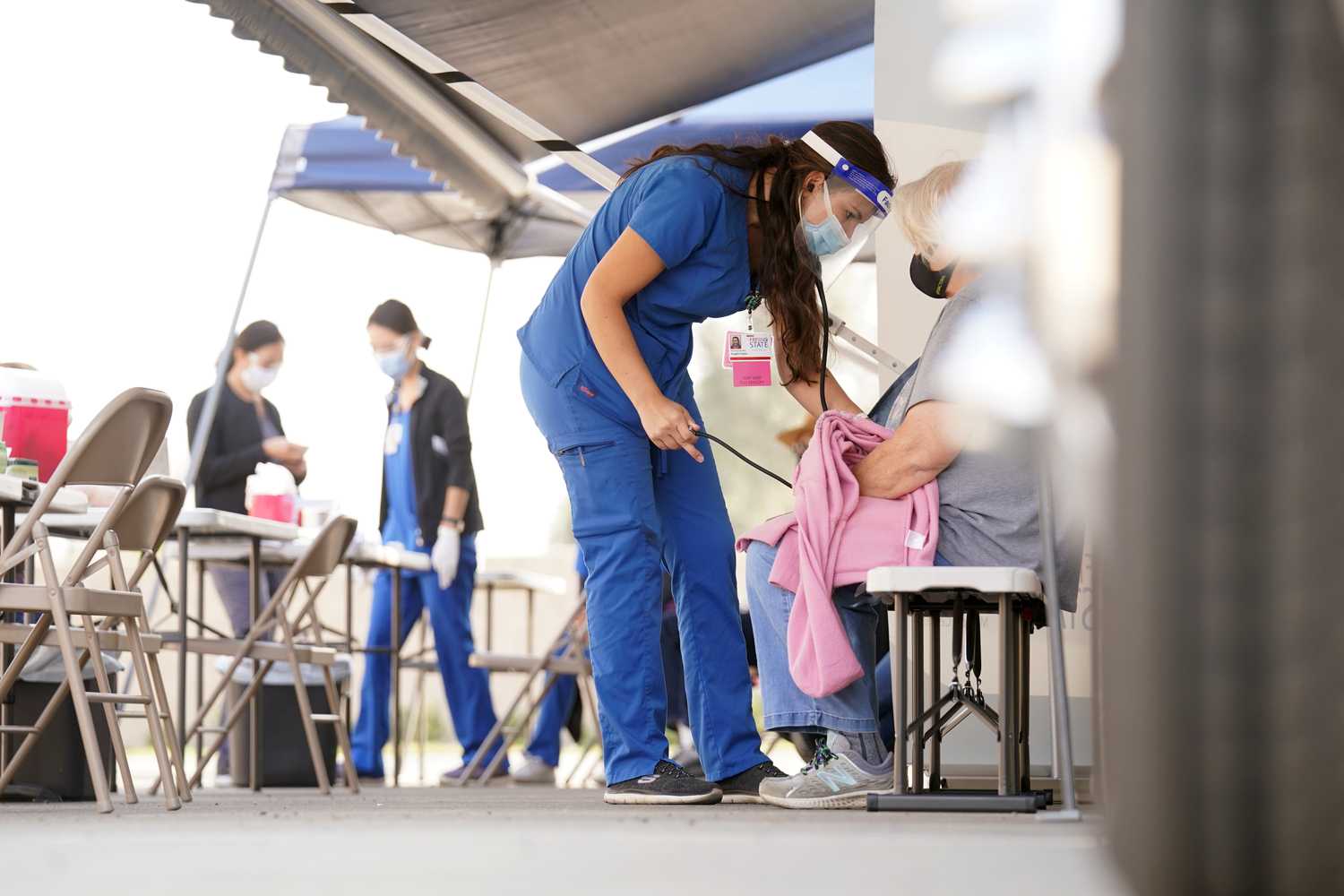Nursing students in the Fresno State Mobile Health Unit are distributing COVID-19 vaccines and offering screenings to communities throughout Fresno County.
The Mobile Health Unit is a program that provides health screening services for underserved communities in Fresno County, but due to the pandemic, the semester has been centered around COVID-19 vaccine distribution.
“Right now [students are] … checking people in and they’re screening people for symptoms of COVID. They’re administering the vaccine. They’re watching them for any adverse reactions to the vaccine. They’re giving information about the vaccine,” said Kathleen Rindahl, Mobile Health Program director and Fresno State associate professor.
Gabriel Iniguez, a fourth-year nursing student, said his involvement with the program provides him with patient experience while also allowing him to better understand the community’s needs. He has distributed flu vaccines, and he is now administering COVID-19 vaccines.
The Mobile Health Unit held a clinic and distributed vaccines on Feb. 20 at Cantua Creek, an event that Iniguez said allowed him to personally connect with the community.
“It was great that our agriculture workers and elderly were still coming out to receive their vaccine,” Iniguez said. “A lot of the participants were Spanish speakers, and being Mexican myself, I felt like I was able to connect with them since I could speak with them in Spanish.”
At the clinics, the Mobile Health Unit primarily administers COVID-19 vaccines to residents older than 65 and agricultural workers.

Tiffany Galutira, a fifth-year nursing student, said her first opportunity to volunteer at a Mobile Health Unit clinic was the vaccine distribution at Cantua Creek.
“While administering the COVID-19 vaccines, it felt like I was a part of history,” Galutira said.
Clinics are run by students involved with the program with the supervision of faculty, providing nursing students experience with patients throughout the community.
Galutira said the experience allowed her to realize the impact the program has on individuals who are facing hardships because of COVID-19 and that a major benefit of the program is the ability to provide communities with easier access to healthcare.
Students involved in the program are able to witness the impact they have on the community by providing health services, Rindahl said.
“It has been a big eye-opener to some of my students when they go out and they see somebody walking around with blood sugar that’s too high to register on machines because that’s not their priority,” Rindahl said. “Their priority is finding a place to live, or their priority is finding food for children. So that has made a huge impact on my students.”
For Holly Vu, a fourth-semester nursing student and community health director, assisting in vaccine distribution has provided her a wider perspective on the true meaning of community health.
“It’s a humbling experience to know that you can make a difference in this pandemic,” Vu said. “The farmworkers are so grateful for our presence in the community. I am grateful to be a part of the frontline workers who are making a difference in the pandemic.”
Macie Cavanaugh, a second-semester nursing student, said involvement with the Mobile Health Program allows her to realize the impact providing healthcare has on the community.
“When I went out to Cantua Creek a week or so back, I remember thinking I can truly see my impact as a student,” Cavanaugh said. “I remember being told that many of the field workers are not able to take time off of work and make that trip to Fresno or any surrounding areas to get the vaccine.”
Future COVID-19 vaccine distribution clinics are planned for the Mobile Health Unit.
The Fresno County Public Health Department will continue to update its COVID-19 vaccine information website with vaccination events as they are announced.
“We’re still continuing to partner with the county to go out and administer the COVID vaccines. We have several areas we have to go back and give the second dose, as well as go to new areas and administer the first dose,” Rindahl said.




